Discover Joe Lonsdale: American Optimist
Joe Lonsdale: American Optimist

91 Episodes
Reverse
Is greatness a choice? If so, why doesn't everyone choose greatness? And more broadly, what are the prerequisites for a great society? This week, I'm joined by Ethan Penner, author of the new book "Greatness Is a Choice" and one of the most influential figures in modern real estate. In his early 30s, Ethan pioneered the creation of commercial mortgage-backed securities and helped build a new market at a critical moment in history. We discuss his journey from the streets of Yonkers to the heights of Wall Street and what he learned from industry greats like Sam Zell. Ethan is also a student of history, religion, and philosophy who cares deeply about advancing freedom and helping others find purpose in life. His new book argues that most people misunderstand greatness and equate it to the top one percent of society. Rather, he believes that greatness is a daily decision to choose excellence, and by deliberately choosing excellence we can bring newfound meaning and fulfillment to our daily lives. Through concise and pointed chapters, like "The Debilitating Effects of the Victim Mentality" and “Equality Is Not the Point," Ethan diagnoses where our modern culture has gone awry and offers an antidote that can inspire us all to pursue greatness. This is a public episode. If you would like to discuss this with other subscribers or get access to bonus episodes, visit blog.joelonsdale.com
At Columbia University's freshman orientation, Coleman Hughes and his classmates were separated into groups by skin color to discuss the effects of racism, with minorities portrayed as victims and white students as beneficiaries. Why have exercises like this become commonplace in elite institutions? How did this neo-racism take hold? And what are the counter-arguments and better approaches to race and diversity? These questions are at the heart of Coleman's new book: "The End of Race Politics: Arguments for a Colorblind America." A talented, rising public intellectual, Coleman was one of the first courageous voices pushing back against the "anti-racist" pablum popularized by Ibram Kendi and Robin DiAngelo. He's a contributor to The Free Press, analyst at CNN, and host of the popular podcast "Conversations with Coleman." In this episode, Coleman argues for a return to colorblindness and the ethics of MLK — not that we pretend we can't see race, but that we strive to move beyond it and focus on character, culture, and merit instead. He makes the case that socioeconomic factors, not race, are more accurate proxies for helping the most disadvantaged in society, and our public policy should be oriented as such. He also exposes the lazy thinking and platitudes that permeate conversations about race, along with some of the worst ideas done in the name of diversity, such as rejecting standardized tests. Finally, we discuss a better way to acknowledge America's past sins while moving forward in a way that unites our country. This is a public episode. If you would like to discuss this with other subscribers or get access to bonus episodes, visit blog.joelonsdale.com
Dr. Clarence Jones is a giant of the civil rights movement. As the personal attorney and speechwriter for Dr. Martin Luther King Jr., he risked everything to help save the soul of America, including smuggling scraps of papers in and out of Birmingham prison that would become Dr. King's Letter from Birmingham Jail. In fact, Dr. Jones never thought he'd live to see the age of 50. Today, he's 93 years old, and one of the last living civil rights icons. In this episode, we trace the journey of an American hero — the son of domestic servants who became valedictorian of his high school and studied at Juilliard before becoming a successful entertainment lawyer. That is until Dr. King showed up at his California home asking for legal assistance. After initially turning him away, he went to hear Dr. King preach, and his life — and the direction of our country — changed forever. We discuss the key moments in his fight for justice, the significance of the black-Jewish alliance, and the legacy of Dr. King, including his thoughts on today's debate over DEI, Critical Race Theory, and colorblindness. He also shares his powerful approach to radical non-violence and his advice for young people today: pursue excellence. Dr. Jones has lived an extraordinary life, and his wisdom on issues of race should be heeded over many of the voices in popular culture today. SHOW NOTES: Dr. Jones was recently awarded the Presidential Medal of Freedom, the Nation's highest civilian honor. Last year, Dr. Jones released his memoir, "Last of the Lions." Learn more about Dr. Jones' work through his foundation and as Chair of the Spill the Honey Foundation, which continues the legacy of the Black-Jewish Alliance. This is a public episode. If you would like to discuss this with other subscribers or get access to bonus episodes, visit blog.joelonsdale.com
Are government programs and interventions superior to market corrections? According to Dr. Cliff Winston, the evidence to support such a claim doesn’t exist. Many economists obsess over market failures but seldom point the microscope in the direction of government, despite its many failures. And worse, the bureaucracy doesn't hold itself accountable. This week, we examine some of the flaws of modern economic theories with Dr. Winston, a microeconomist and Senior Fellow at the Brookings Institution, with a B.A. and Ph.D. in economics from UC Berkeley, and Masters from the London School of Economics. He is the author of numerous books and papers, including, most recently, “Indispensable: Market corrections in a U.S. economy beset by government failures.” From antitrust to welfare programs and tax incentives, most Americans assume government interventions are preferable to allowing the market to correct itself, but as Cliff explains, we don't have scholarly evidence to back that up. He explains why we need government retrospectives and more widespread experiments to test what does or doesn't work. When has government been effective? Ironically, Cliff says, when it gets out of the way: deregulation. We talk about the benefits of airline deregulation, for example, and Cliff makes the case for deregulating the legal profession and other areas that require occupational licensure. Finally, we discuss scenarios where government involvement could be beneficial, such as setting adoption standards for autonomous vehicles. This is a public episode. If you would like to discuss this with other subscribers or get access to bonus episodes, visit blog.joelonsdale.com
STEM (science, technology, engineering & math) education is the backbone of the innovation economy. Yet at many schools, it's become stodgy and irrelevant to solving real-world problems. Not surprisingly, many of the best minds forgo college or drop out. What would it look like to design a STEM program that is inspiring, cutting-edge, and grounded in timeless truths? And how do you educate the next generation of great entrepreneurs who are also citizens of virtue? This week, we discuss a better model for STEM with Dr. David Ruth, Dean of the Center for STEM at the University of Austin (UATX). Dr. Ruth is a retired U.S. Navy Captain who worked on a nuclear attack submarine, an aircraft carrier, and as a war planner in Asia, before teaching advanced mathematics at the U.S. Naval Academy for 13 years. In this episode, Dr. Ruth lays out UATX's approach to 21st-century STEM: a curriculum that balances first principles with practical application and unparalleled industry engagement. (We're already partnering with The Boring Company and other leading companies in Texas!) Many STEM programs bog down students in unnecessary tasks; UATX is taking a different approach with "computation-enabled thinking" that combines what humans do best (abstracting, modeling, and interpreting) with what computers do best (computation). We also discuss how to safeguard science and math from identity politics, and the importance of making STEM exciting and challenging through innovative games and challenges. If you're a student pursuing a STEM education, we hope you'll check out what we're building at UATX. This is a public episode. If you would like to discuss this with other subscribers or get access to bonus episodes, visit blog.joelonsdale.com
In 1979, Crown Prince of Iran Reza Pahlavi was attending fighter pilot school in Lubbock, Texas when the Islamic Revolution overthrew his father's reign. A radical theocracy seized power and began extinguishing freedoms, persecuting minorities, and taking a pro-Western Iran back to the Middle Ages. Since then, the Crown Prince has lived in exile as a leading voice for a secular and democratic Iran. What is his view of the Revolution? Why does he believe regime change is possible today? And how should the U.S. and the West deal with Iran? Given Iran's recent attack on Israel, we get a rare and timely perspective on the power dynamics within Iran and why the current regime is more fragile than we realize. The Crown Prince paints a picture of his homeland pre-and-post Revolution, and explains why many governments misunderstand the fanatical leadership of Iran. He lays out his strategy of "maximum support" and how combining sanctions and external pressure with internal support, such as internet access and financial resources for protestors, could someday topple the regime. And if it does, he details a post-regime strategy to transition the government toward a secular democracy. We also discuss the longstanding history between the Persian and Jewish people, and how, with the right leadership, the region could once again become dynamic and prosperous. [NOTE: this conversation was recorded shortly before Iran launched hundreds of missiles and drones at Israel.] This is a public episode. If you would like to discuss this with other subscribers or get access to bonus episodes, visit blog.joelonsdale.com
India’s tech ecosystem has hit an indisputable inflection point in recent years. For decades, American corporations outsourced basic services to India, while India outsourced its top talent to Silicon Valley. But today, India’s tech economy boasts homegrown software giants and a flourishing startup scene.This week, we get a front-row look into India’s startup evolution with one of its top talents: Sri Ganesan, Founder and CEO of Rocketlane. His first company, Konotor, was acquired into Freshworks, which went public in 2021 for $10 billion and became one of India's biggest wins. Now, Sri is building Rocketlane into a leading solution for SaaS deployment and professional services automation, with teams in the U.S. and India. By combining American know-how with Indian talent, Rocketlane represents an important dynamic for the future of tech and expanding key partnerships around the world. In this episode, we dive into the lessons learned from Freshworks's success and how it paved the way for greater entrepreneurial risk within India. We also explore Sri's journey in scaling Rocketlane, from finding product-market fit to positioning the company to take advantage of the AI wave. We discuss what India’s rise to become one of the world's most important economies means for the future of tech and global talent distribution, along with the cultural differences between India and the US, and what it's like building on two continents simultaneously. Finally, Sri guides us through the various tech hubs in India, from Mumbai to Bangalore and Chennai, even down to his favorite restaurant and must-visit destinations for anyone heading to India soon. This is a public episode. If you would like to discuss this with other subscribers or get access to bonus episodes, visit blog.joelonsdale.com
Every year, more than 20,000 Americans receive a bone marrow transplant — a Nobel prize-winning procedure that saves many lives but also carries great risk. For leukemia patients, it's a choice of last resort, as nearly 20% die from the transplant. Ivan Dimov, co-founder & CEO of Orca Bio, and his team have created a novel cell therapy alternative that has already saved over 400 lives in clinical trials with virtually zero rejection!This week, we dive into Ivan's journey, the science behind Orca's cancer breakthrough, and the potential of cell therapies to cure a host of other diseases. By discovering new, high-precision methods to manipulate cells, Orca is able to provide leukemia patients with a designer immune system that attacks the cancer while nearly eliminating rejection. By safely rebooting the immune system, Ivan and his team believe Orca also has the potential to cure autoimmune diseases like Crohn’s disease and multiple sclerosis, and impact the lives of millions of Americans.Orca is currently seeking the first-ever FDA approval in this space, and since it's a unique one-time curative therapy, they are also commercializing the drug in-house — a rare move in biopharma. Ivan walks us through the path to bringing Orca's products to market, from collaborating with regulators to negotiating with insurance companies and scaling up its manufacturing. Though many challenges remain, you'll see why we're incredibly bullish on Ivan's leadership and Orca's potential to transform the future of medicine. This is a public episode. If you would like to discuss this with other subscribers or get access to bonus episodes, visit blog.joelonsdale.com
What are the forces behind the scenes that drive financial markets? How do bubbles form — and are we in one now? What do the world's best investors understand and how do they consistently come out ahead? This week we dive into global finance with one of the sharpest minds in macro investing: Whitney Baker, Founder and Chief Investment Officer of Totem Macro. Whitney previously worked at two of the world's leading investment firms, first in global macro & long/short strategies at Soros Fund Management and most recently as the Head of Emerging Markets at Bridgewater Associates. In this episode, Whitney lays out the principles behind macro investing and how credit flows, borrowing cycles, and monetary policy drive global finance. She traces our current-day situation back to the 1970s when President Nixon ditched the gold standard and opened trade with China. She explains how a new age of deficit spending combined with China entering the U.S. bond market paved the way for the dot com bubble, and ultimately where we are today. Whitney makes the case that inflation isn't going away soon and believes the Federal Reserve's actions over the past few decades have exacerbated inequality in America. Yet, despite these headwinds, Whitney believes technological progress can sustain the U.S. through these challenging times, so long as we set the right conditions for our best entrepreneurs to succeed. Thanks for reading! Subscribe for free to receive new posts and podcasts. This is a public episode. If you would like to discuss this with other subscribers or get access to bonus episodes, visit blog.joelonsdale.com
U.S. e-commerce sales eclipsed $1 trillion last year and are expected to double or triple over the next decade. As online demand increases, how can small businesses compete with retail giants like Amazon and Walmart? What capabilities do they need? And can a new model help level the playing field? This week, we explore the future of logistics and e-commerce with Tyler Scriven, co-founder and CEO of Saltbox. Tyler was a star talent at Palantir for many years (his first job title was "Predictor and Crusher" on account of his ability to eliminate operational challenges) before applying his learnings to help entrepreneurs nationwide. He identified a key gap in the market: small businesses have great software tools, but need help in the physical world with supply chain and logistics to compete against large retailers with scale advantages. With a dozen locations in major metropolitan areas, Saltbox provides a unique co-warehousing model to elevate storage and shipping capabilities. In this episode, we discuss Tyler's most important lessons from Palantir and how to cultivate a mission-driven culture. We cover his entrepreneurial journey from Palantir to acquiring his own small business and discovering the logistical shortcomings that Saltbox is designed to solve. We also talk leadership lessons and Tyler's compelling perspective on "courage for normal people." This is a public episode. If you would like to discuss this with other subscribers or get access to bonus episodes, visit blog.joelonsdale.com
Leonard Leo is one of the most effective agents of legal and cultural change in America today. What's his playbook? How can we apply it to other broken areas of society? And why should the technology world be especially interested in his work?In the mid-20th century, the U.S. judicial system took a sharp left turn, resulting in hyper-politicized courts, runaway bureaucracies, and many other distortions of our Constitutional system. Through his leadership of the Federalist Society, Leonard has led the charge to repair these broken institutions and, in the process, built arguably the most powerful legal network in the nation. He's been instrumental in the most important judicial elections and nominations of the past few decades. Leonard's wisdom is especially relevant for my friends in the effective accelerationism (e/acc) movement — or anyone who values technological progress. Standing athwart innovation is the ever-expanding administrative state, and Leonard has spent decades fighting to rightsize government and restore the separation of powers. He explains why property rights, limited government, and decentralized power are the bulwark of innovation, and why technologists must also join the effort to rein in the regulatory state and defend these sacred Constitutional principles. This is a public episode. If you would like to discuss this with other subscribers or get access to bonus episodes, visit blog.joelonsdale.com
What are the single most effective policies for helping the world's poor? And what are we doing right now that's ineffective and should be stopped? The answers may surprise you. In his latest book "Best Things First," Bjorn Lomborg reveals the 12 best solutions to address the most pressing global challenges. He gathered the world's top economists to analyze the policies that would do the most good for the least amount of money. It turns out the United Nations and others are getting it wrong — climate policies didn't make Bjorn's list! In 2015, the UN released its Sustainable Development Goals — a mere 169 promises to achieve by 2030! Yet as Bjorn explains, these are largely virtue signaling or ineffective vows the UN will never make good on. Instead of overpromising or obsessing over climate change, Bjorn says the evidence points to 12 clear and measurable policy solutions: eliminating tuberculosis, investing in education the right way, and establishing clear land rights, to name a few. Bjorn is the Founder and Director of the Copenhagen Consensus think tank and one of the world's most influential writers and thinkers. He's made a career challenging misguided narratives, especially on environmental issues, while fighting to restore sanity and fact-based policymaking. His arguments are a direct challenge to the alarmism and doomerism surrounding us today, which is why YouTube and others try to censor him! This is a public episode. If you would like to discuss this with other subscribers or get access to bonus episodes, visit blog.joelonsdale.com
By the summer of 2012, ride-sharing had arrived: Uber launched its everyman product, UberX, and Lyft debuted hot on its heels. Today, Lyft's market cap hovers around $5 billion while Uber's is north of $140 billion. How did Uber explode to global dominance? What was different about its culture? And how did it take on taxi cartels around the world and win? This week, we go behind the scenes with Emil Michael, one of Silicon Valley's great operators and dealmakers. As the former Chief Business Officer, Emil helped Uber raise a record $15 billion in two years and led its expansion into the most difficult markets, including China, Russia, Saudi Arabia, and Italy. (Yes, Italy.) Emil recounts his biggest wins and toughest challenges, including how the Italian mafia threatened to kill Uber employees and why to this day ride-sharing is almost nonexistent in Italy. Emil immigrated with his family to the U.S. from Egypt as a young child, and his success and character epitomize the American Dream. He graduated from Harvard, received his J.D. from Stanford Law, and began his entrepreneurial journey at TellMe, an early speech recognition company. He quickly became known for his dealmaking skills, including transforming a $300 million acquisition offer into a $800 million deal with Steve Ballmer and Microsoft. After TellMe, he served as a White House fellow at the Pentagon and spent time in Iraq and Afghanistan, before later joining Uber. We dive into his unique approach to high-stakes negotiations and lessons learned from his distinguished career. This is a public episode. If you would like to discuss this with other subscribers or get access to bonus episodes, visit blog.joelonsdale.com
Can investigative journalism prevail over sensational clickbait? Is it time to give up on San Francisco? Is the First Amendment sufficient to prevent the government from colluding with, or forcing, Big Tech to censor speech? This week, join us for a one-of-a-kind conversation with Mike Solana, Chief Marketing Officer at Founders Fund and Founder of Pirate Wires, one of the fastest-growing and most influential new media companies. Mike is a must-follow on X for his wit and unique insights, but also for the work he's doing to expose corruption and revive investigative reporting. Pirate Wires recently revealed how San Francisco taxpayers are being forced to fund the protests that shut down the Bay Bridge! We begin our discussion with the broken state of media, and why Mike believes a subscription model is the path to building a successful media outlet that isn't beholden to clickbait. Next, we discuss whether SF can be saved from the far Left and why we need better elites who don't blindly fund radical non-profits. We also cover several of Mike's seminal pieces of writing: the future of free speech when the government and Big Tech create a decentralized censorship regime, and how to revive our country's ability to build great, inspiring works. Can we restore competence in government or should we turn our energy and attention elsewhere? We discuss! This is a public episode. If you would like to discuss this with other subscribers or get access to bonus episodes, visit blog.joelonsdale.com
What is e/acc (effective accelerationism) and why is it going viral among tech's elite? Who are the leaders behind this movement and what are their ambitions? This week, we explore e/acc with one of its pioneers, Guillaume Verdon (aka @BasedBeffJezos), a theoretical physicist at the cutting edge of quantum computing and AI. Guillaume worked under Sergey Brin as the quantum deep learning lead at Google X before launching a thermal computing startup called Extropic. He started e/acc as a cultural counterforce to the degrowth and doomer movements that sow distrust of technology and seek to undermine the advancement of artificial intelligence and other emerging innovations. Fifty years ago, sci-fi was some of the most inspiring art in America. It's no coincidence that it preceded the birth of the space and digital ages — the stories and narratives we tell ourselves as a society are the ones we tend to work toward. Not surprisingly, as sci-fi took a dystopian turn in recent decades, society's view of technology and progress soured as well. E/acc is the antidote; it aims to inspire a cultural, then technological, renaissance in the West. While e/acc has gained popularity through viral memes on social media, it's also a cohesive framework designed to apply to the modern world. In this episode, we discuss the first principles behind e/acc, steelman the arguments against it, and explore how it's compatible with religion and other ethical frameworks. This is an important movement that resonates with us at American Optimist. This is a public episode. If you would like to discuss this with other subscribers or get access to bonus episodes, visit blog.joelonsdale.com
Who should be in charge of the culture of a company? How do you maintain a spirit of innovation as an organization scales? How can executives be transparent about their shortcomings while also improving as leaders? Scott Cook, the founder and former CEO of Intuit, has navigated these challenges himself while mentoring hundreds of other leaders on how to do the same. Scott is a legend of Silicon Valley. In 1983, he founded Intuit and pioneered consumer finance software, first with Quicken and later TurboTax, Quickbooks, and other products that quickly became household names. During the 8VC Leadership Summit, I sat down with Scott to discuss some of his most important lessons learned and advice to CEOs and founders. He begins with the responsibility of the CEO to set the company culture, and why leadership doesn't get to play by a different set of rules than its employees. He also explains how success can make organizations slow and stupid, and how to fight the forces of inertia. One way is by orienting decision-making around experimentation, not opinion or status, and he illustrates how Intuit learned to adopt this mindset. Finally, he advises CEOs to advertise their failures, not bury them, and seek out accountability and outside scrutiny from coaches and advisors. This is a public episode. If you would like to discuss this with other subscribers or get access to bonus episodes, visit blog.joelonsdale.com
In the wake of October 7, the decadence and rot of our legacy universities have been on full display. We've seen feckless leadership from college presidents, moral cowardice from faculty, and, as a result, shocking displays of anti-Semitism unchallenged on campus. It's time to build anew. That's why we founded the University of Austin — America's first new top university in almost a century. And we are now accepting students for our inaugural class in the fall of 2024! In this episode, three of UATX's founders — myself, UATX President Pano Kanelos, and world-renowned historian Niall Ferguson — discuss this critical moment for UATX, and the nation. We dive into what sets UATX apart: a constitution that safeguards freedom of inquiry and expression; a curriculum that combines the intellectual foundations of Western Civilization with real-world applications; and a faculty and support network made up of the world's leading scholars, writers, entrepreneurs, and builders. As Niall and Pano explain, we're training the Navy SEALs of the mind — the next generation of leaders who can reason, debate, build, and restore our republic to greatness. Right now, we're looking for our first 100 students. If you're a maverick and have what it takes to help us forge a new path in higher education, we encourage you to apply. This is a public episode. If you would like to discuss this with other subscribers or get access to bonus episodes, visit blog.joelonsdale.com
The U.S. spends $280 billion annually on healthcare billing! It's an irrationally complex and outdated system in which most claims are adjudicated manually, resulting in massive inefficiencies and bogus claim rejections. Why is it so broken? How do we fix it? And what would healthcare look like if it functioned properly? That's what I discuss with Nick Perry and Doug Proctor, co-founder & CEO and COO of Candid Health, respectively. Two talented Palantir alumni, Nick and Doug represent a trend I'm watching closely: leading technologists with a top culture, the right software, and new breakthroughs in machine learning taking on the most broken areas of our economy. In this episode, they explain the origins of Candid and how they first learned the billing process by hand in order to build the information architecture necessary to process myriad types of claims with extremely low denial rates. At scale, Nick & Doug envision Candid as Stripe or Shopify for healthcare: the infrastructure layer that automates revenue cycle management and dramatically lowers the barrier to entry for new healthcare startups. And if we ever want the U.S. to move from its broken fee-for-service model to value-based care, we'll need platforms like Candid to enable that shift — another reason I'm bullish on Candid and the leaders behind it. This is a public episode. If you would like to discuss this with other subscribers or get access to bonus episodes, visit blog.joelonsdale.com
Secret police groups, illegal bio labs, and large-scale influence operations — China is engaged in these activities inside the United States today. How should we respond? Is economic divorce the answer? And are we destined for conflict, or is there a path toward peace and mutual prosperity? We discuss these pressing issues with Rep. Mike Gallagher, Congressman for Wisconsin's 8th District and Chairman of the House Select Committee on the Chinese Communist Party (CCP). A distinguished warrior-scholar, Chairman Gallagher served in the Marines and deployed to Iraq, earned two Master's degrees and a Ph.D., and now leads one of the most consequential committees in Congress. In this episode, he details some of the CCP's most nefarious activities within the U.S., and our government’s inadequate responses. We discuss the right strategy for addressing the CCP, including when and where economic decoupling makes sense. Chairman Gallagher also provides an update on new legislative efforts he believes will finally succeed at forcing a sale of TikTok, and he explains why China's economic woes and looming demographic crisis might make Xi Jinping more likely to take aggressive action. If you want to understand the extent of the CCP's malign actions and influence campaigns, follow the bipartisan work of Chairman Gallagher's committee. This is a public episode. If you would like to discuss this with other subscribers or get access to bonus episodes, visit blog.joelonsdale.com
Ten million students attend community college annually, but only 30% ever graduate! It's a massive economic loss to students and society. What if a new model could drastically increase completion rates while maintaining a high-quality education, and leave students with zero debt? That's what Tade Oyerinde is aiming to build with Campus, a new way to conduct community college. His approach is two-pronged: improve quality and increase completion rates. First, Campus is pioneering a gig economy for top adjunct professors. Recognizing that adjuncts at elite universities are often underpaid and drowning in debt, Campus offers them the opportunity to teach part-time online — a win for adjuncts and students alike. Next, they surround students with support designed to reduce attrition: tuition includes a laptop, wifi, and a personal coach, all at a cost less than the annual Pell Grant (currently $7,495). Campus also recently acquired a brick-and-mortar school in Sacramento that offers hands-on skills training for in-demand career tracks, such as medical coding and cosmetology. Instead of taking on large sums of debt to attend mediocre private schools, Tade believes community college is the smarter path for most students, and hopes Campus will be at the forefront of a new era in higher education. But it won't be easy. Learn about his journey to reinvent one of America's most entrenched and misaligned sectors. This is a public episode. If you would like to discuss this with other subscribers or get access to bonus episodes, visit blog.joelonsdale.com


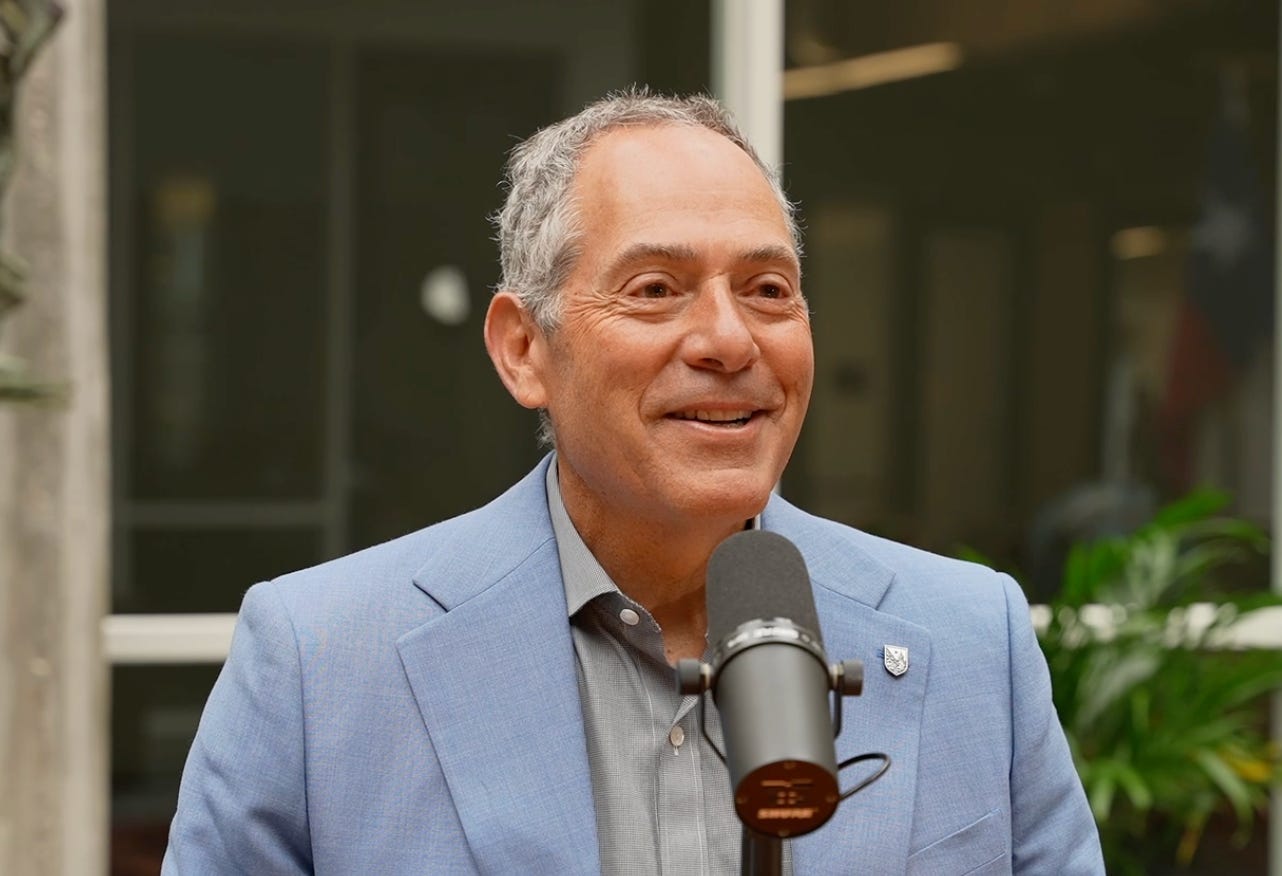
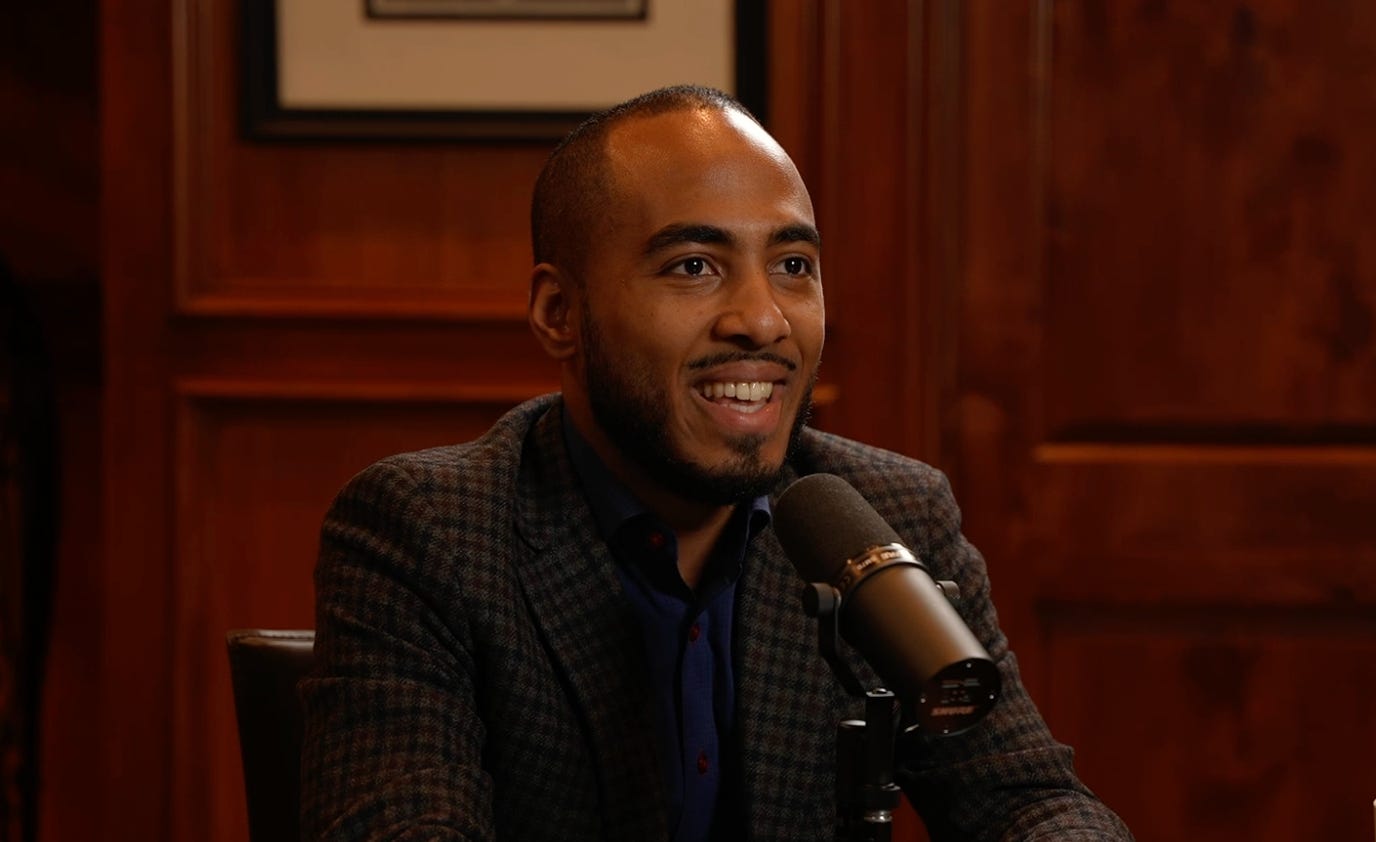
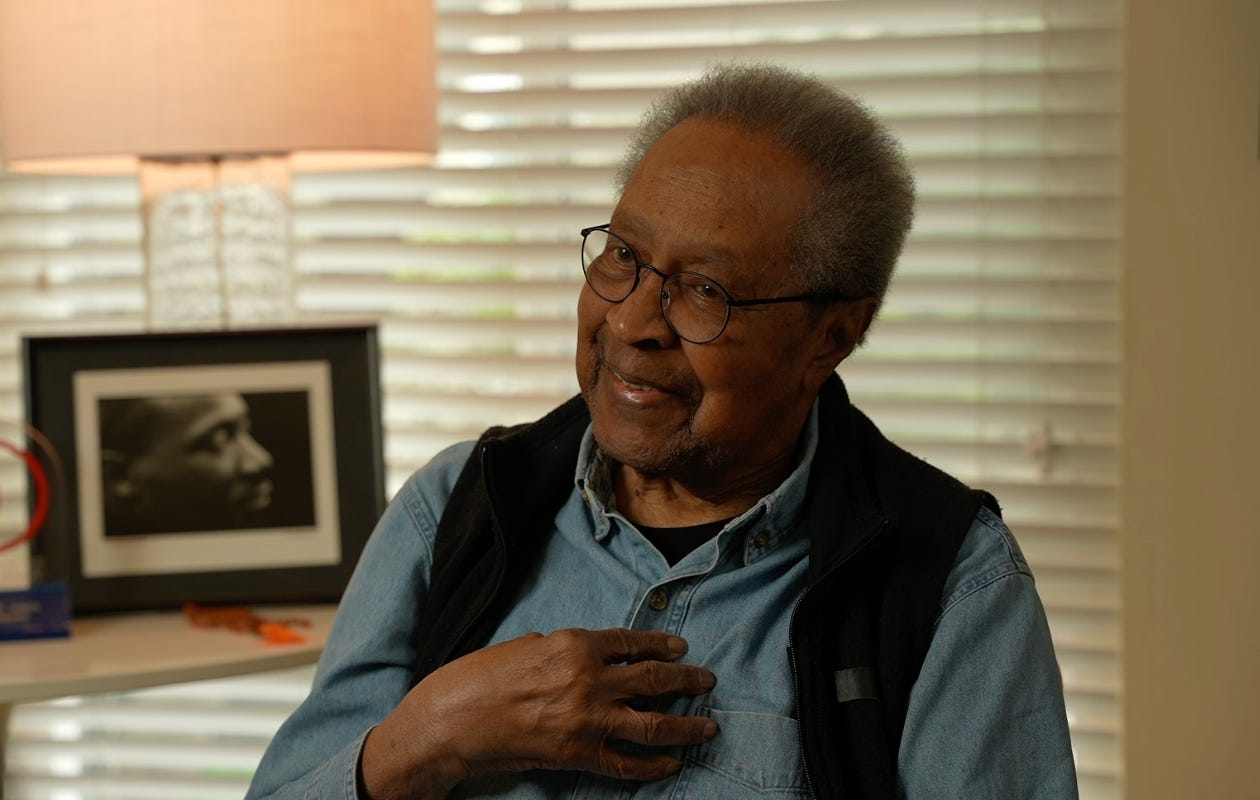
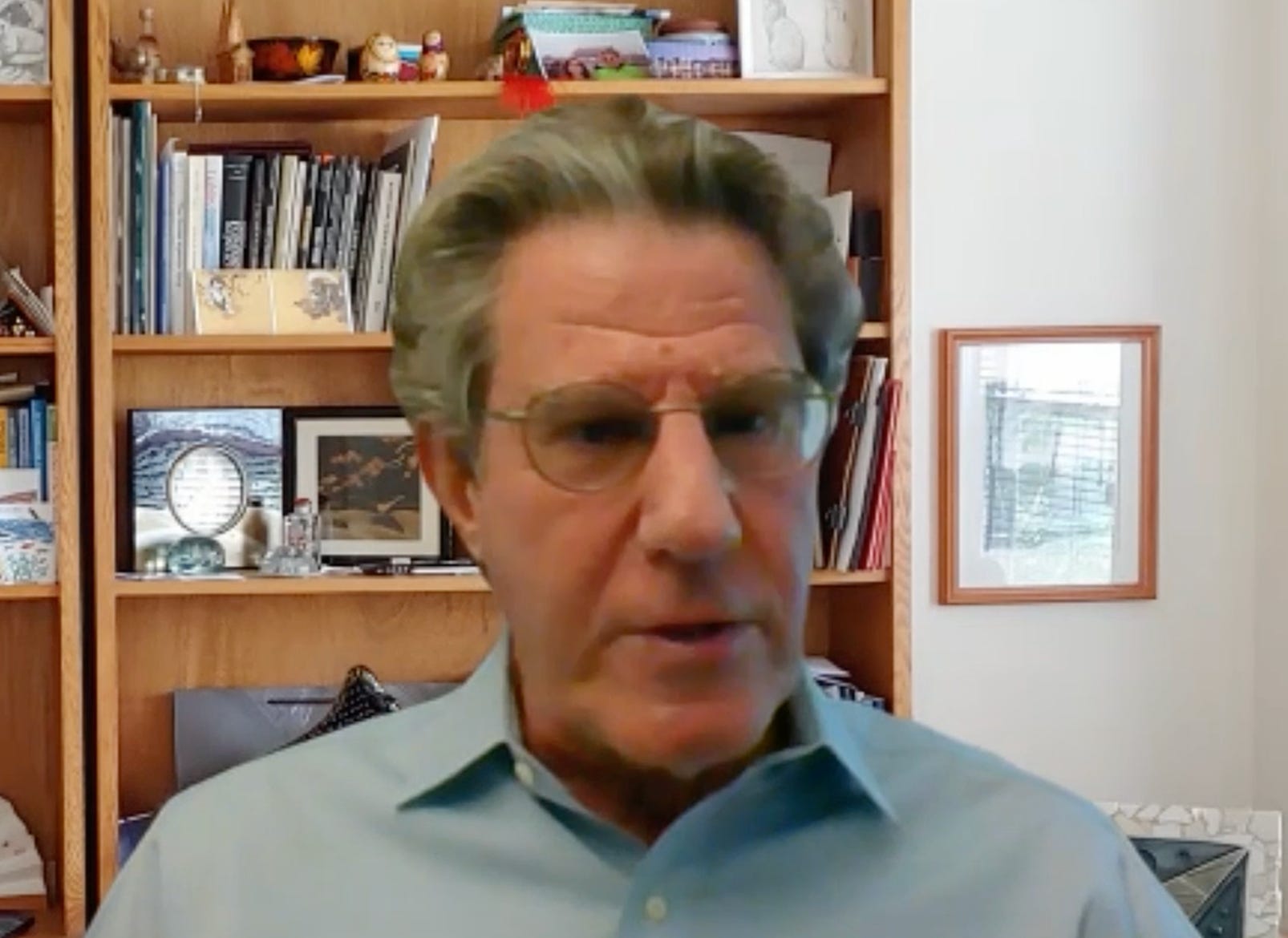
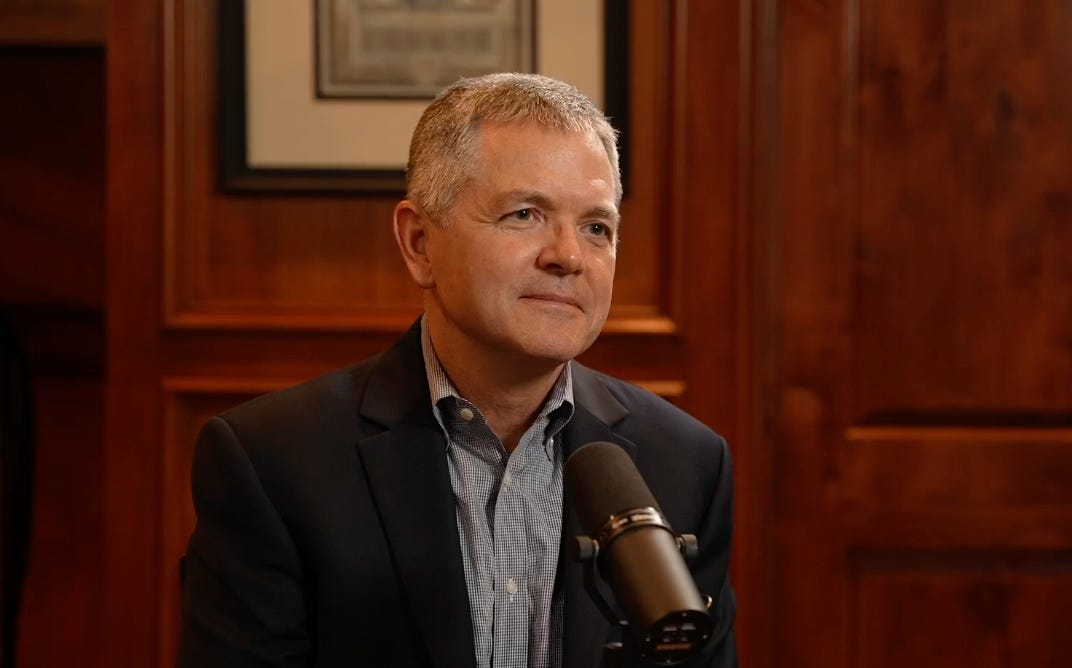
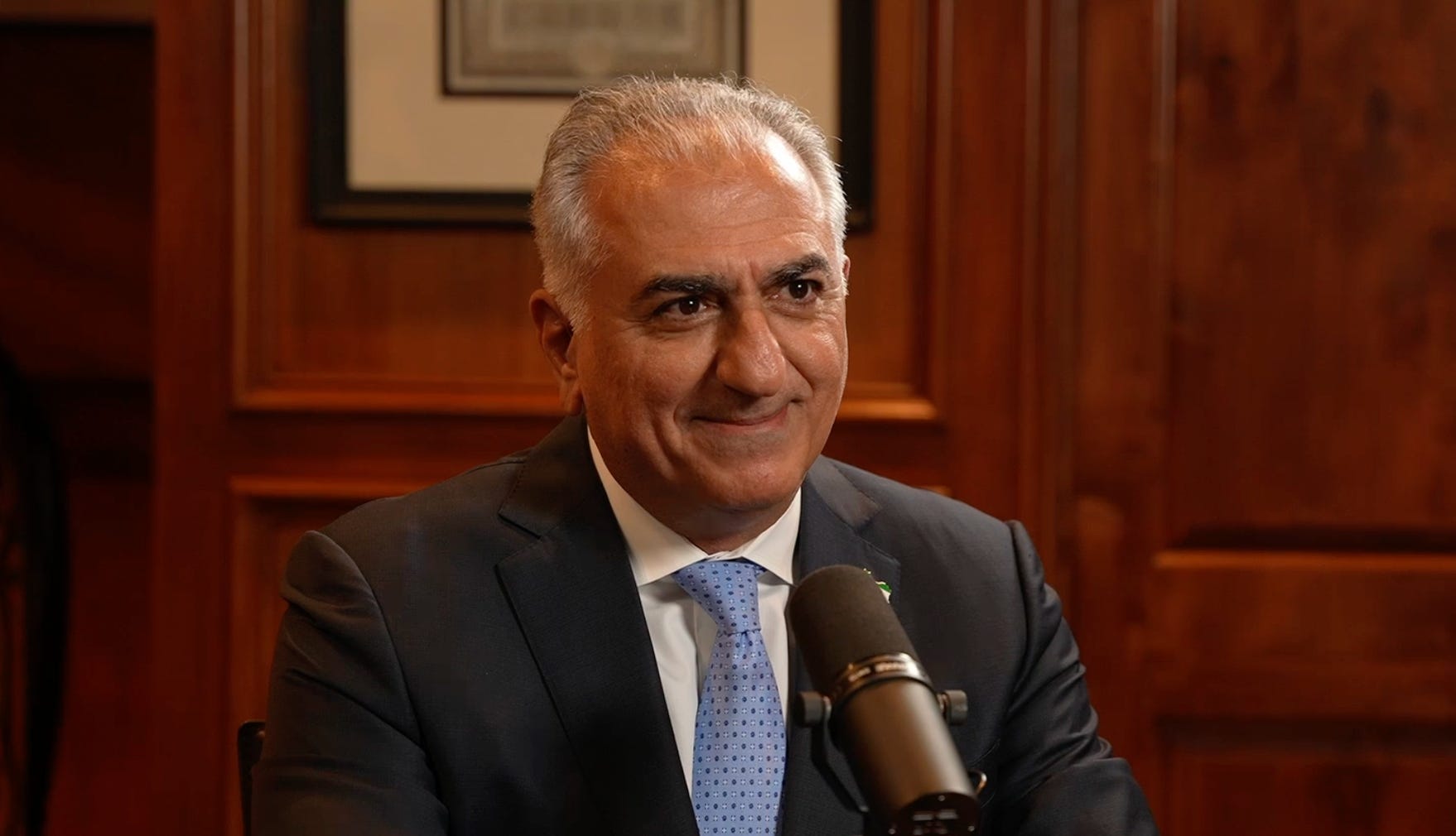
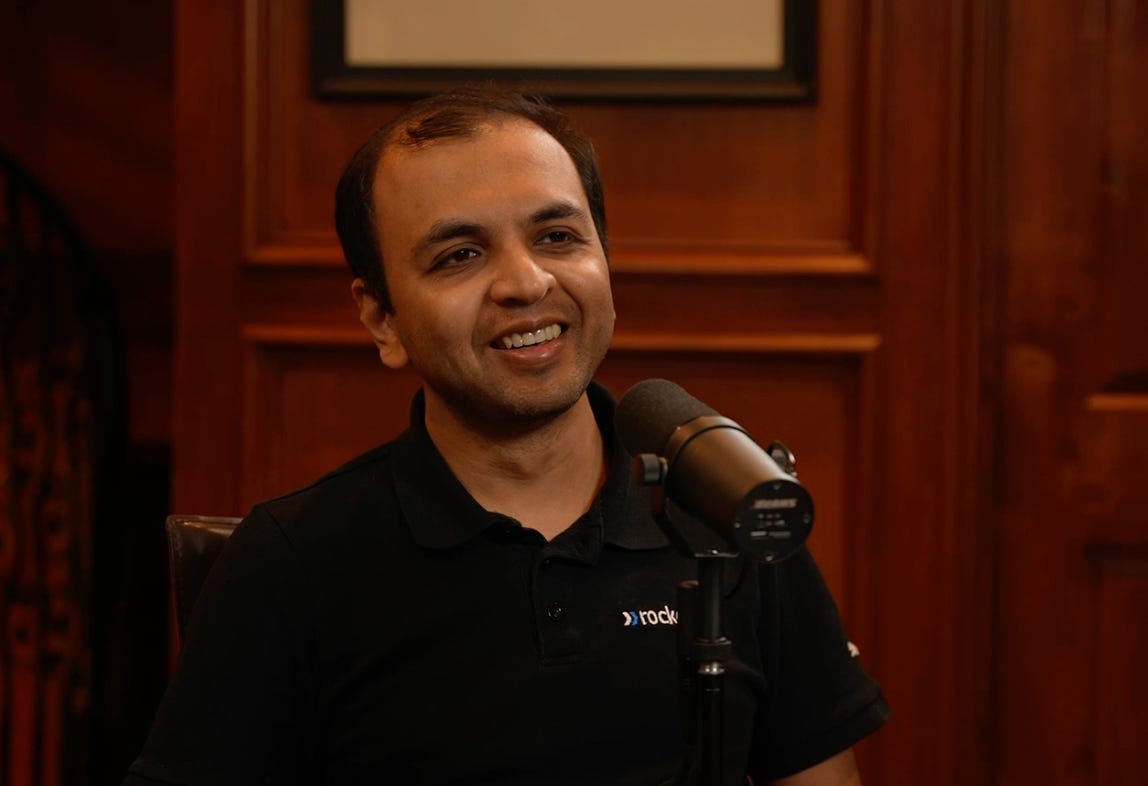
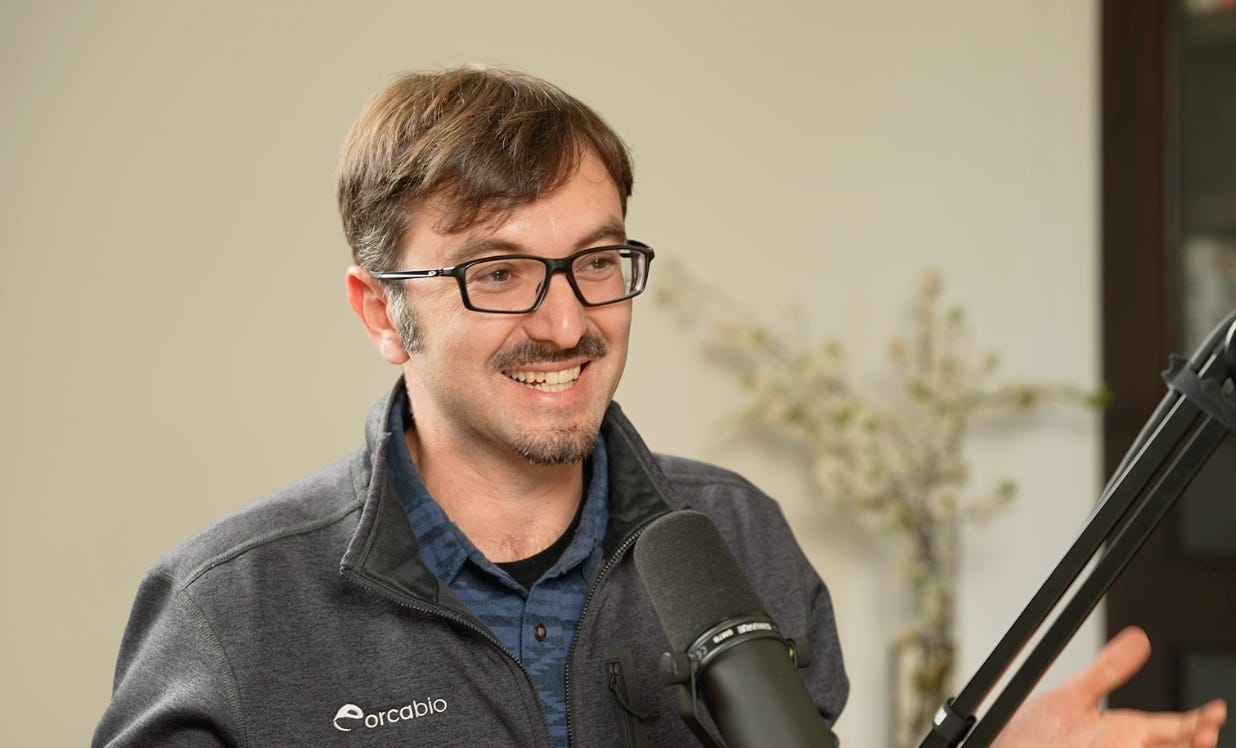
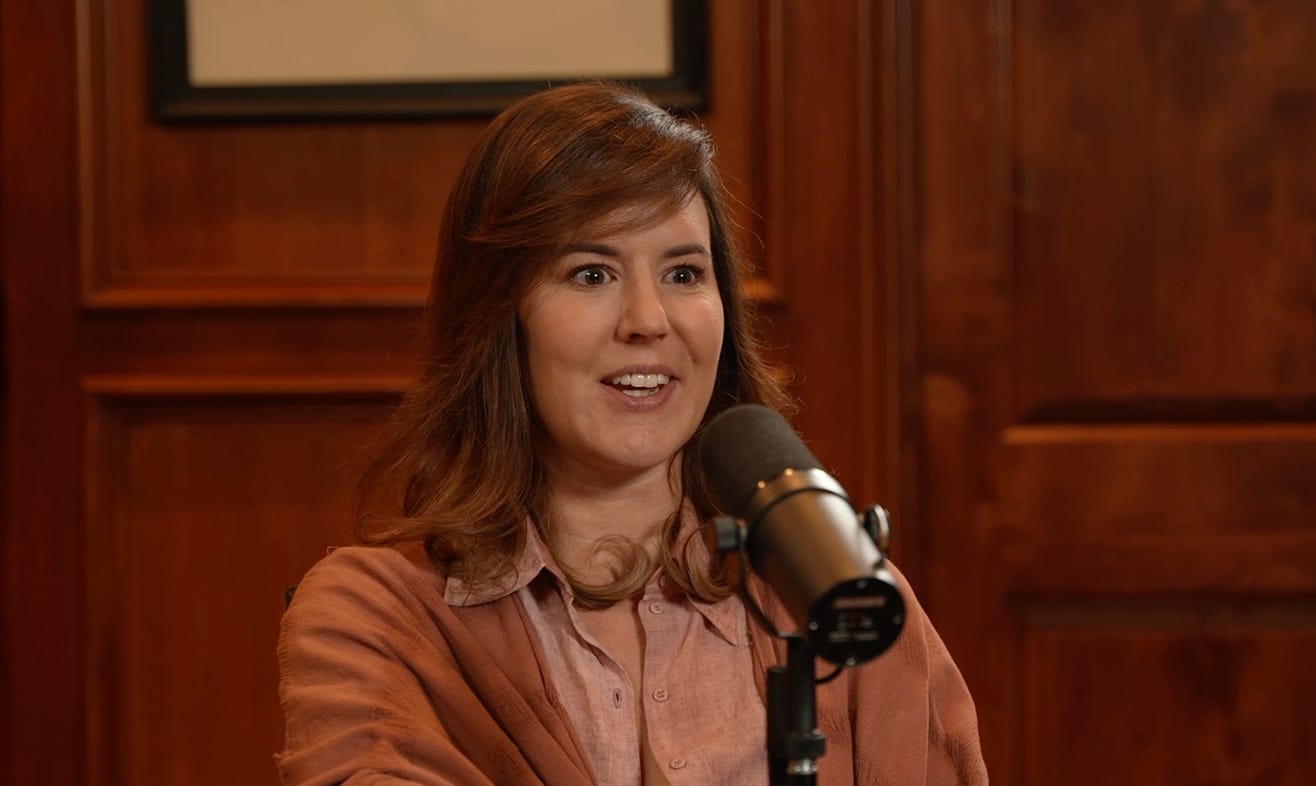
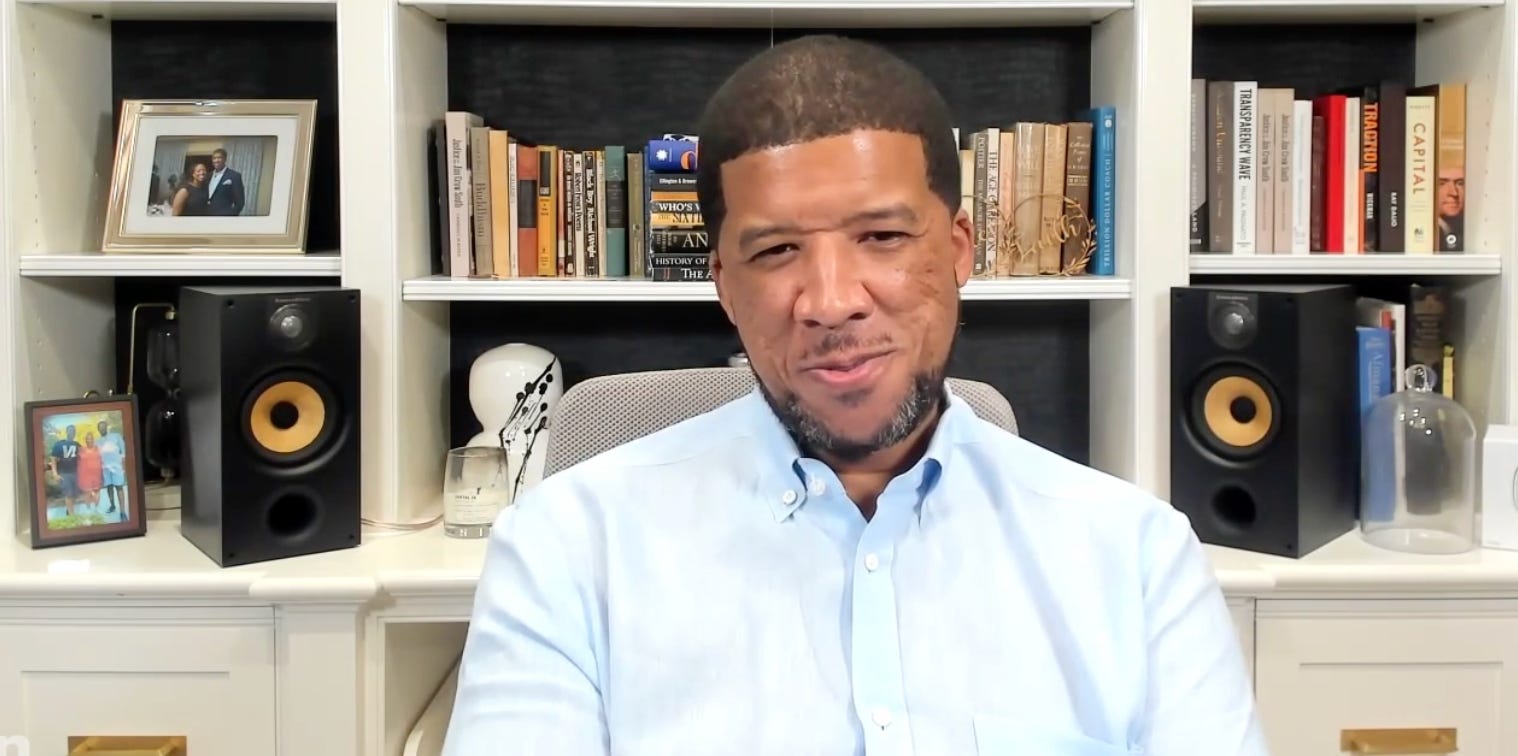
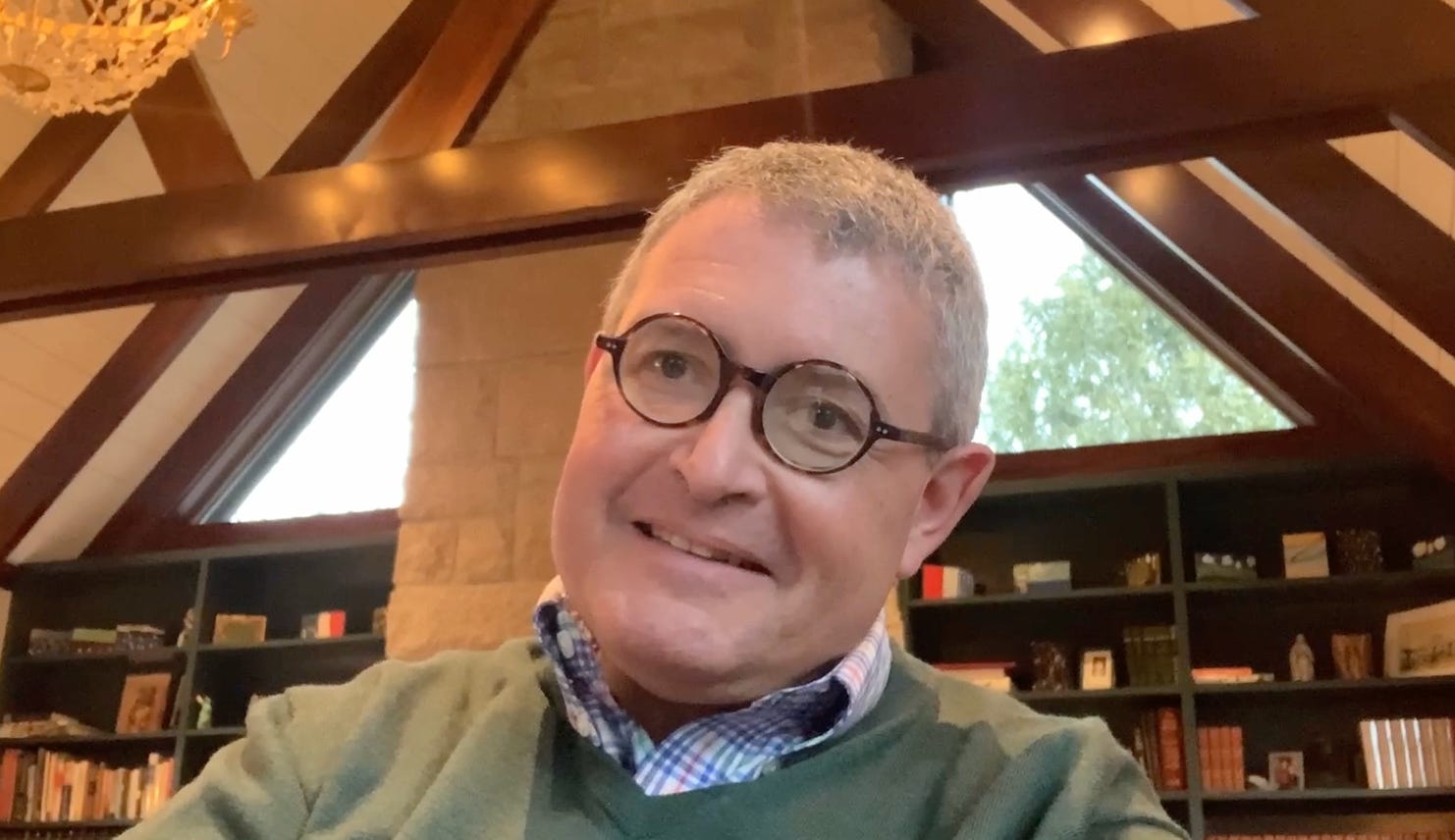
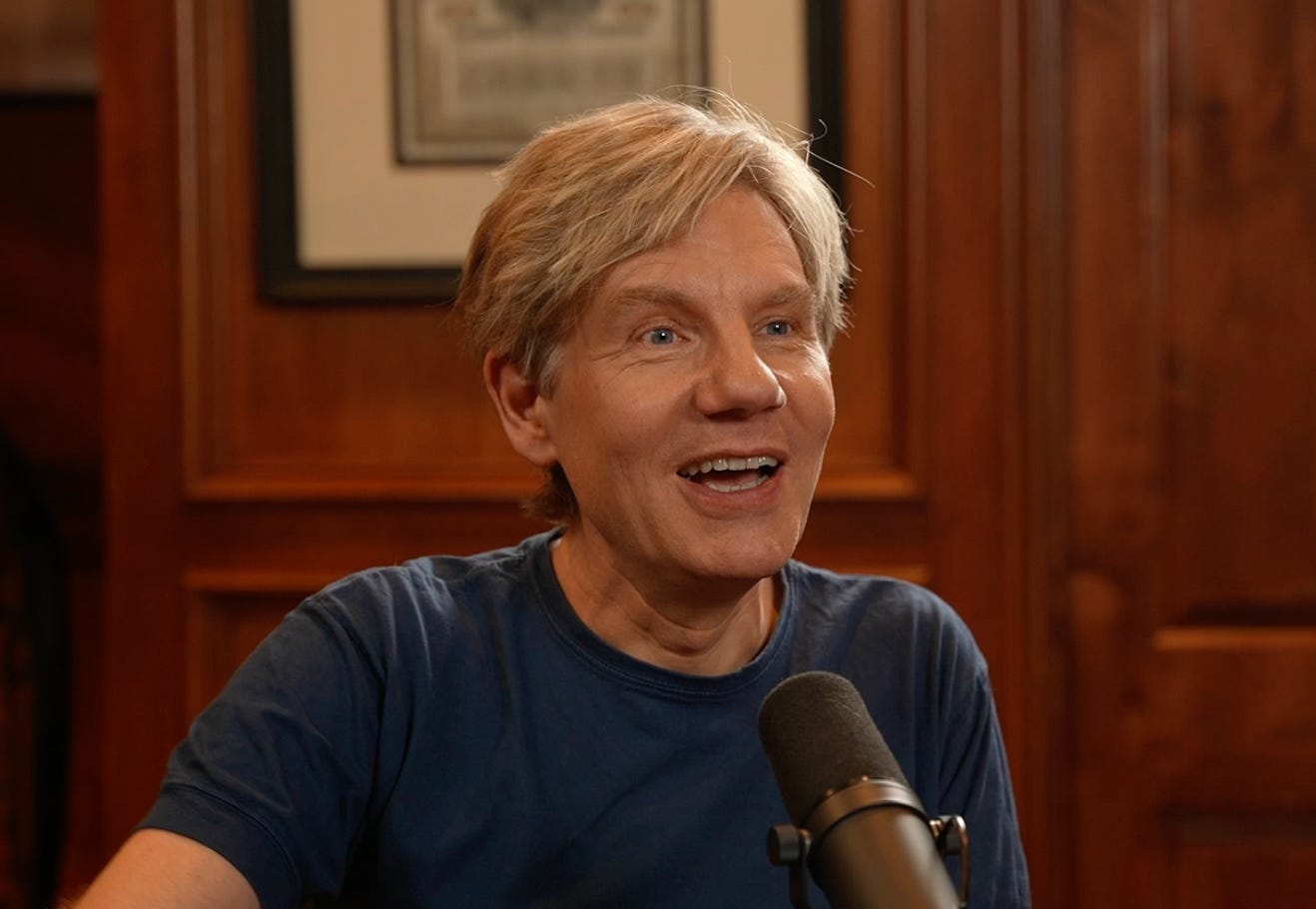
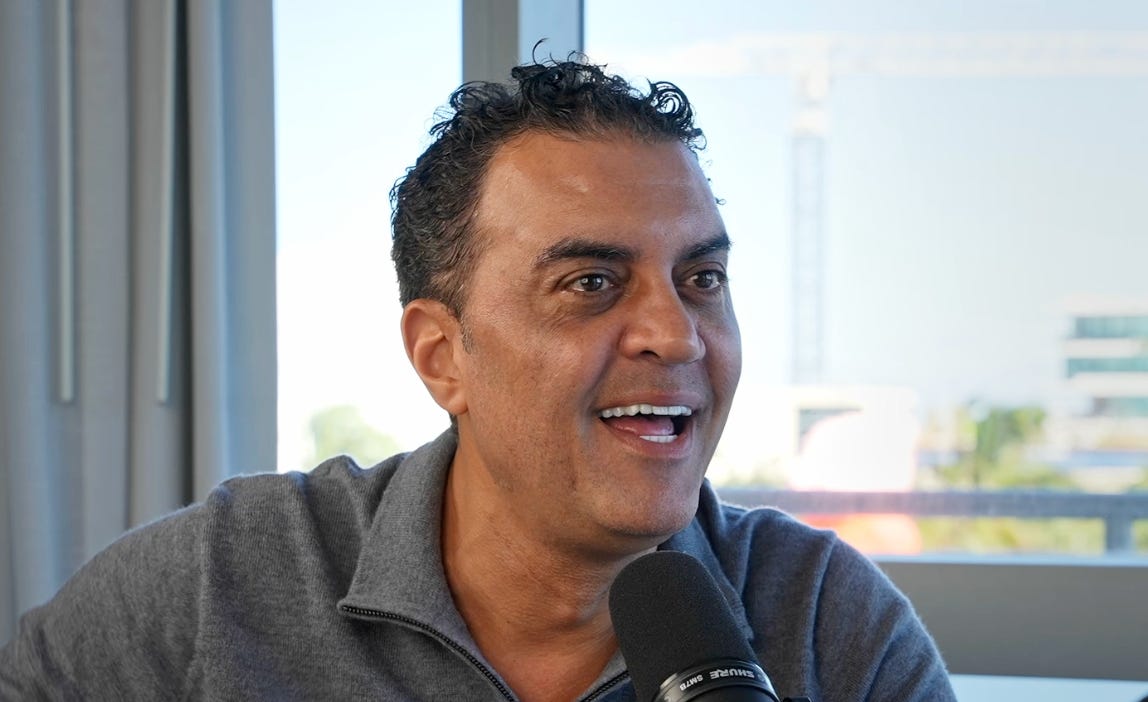
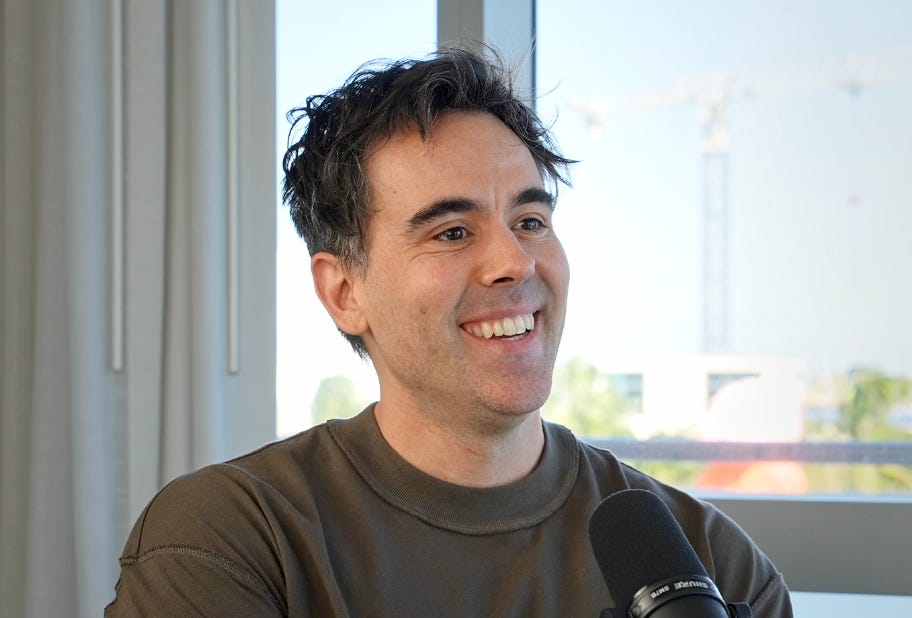
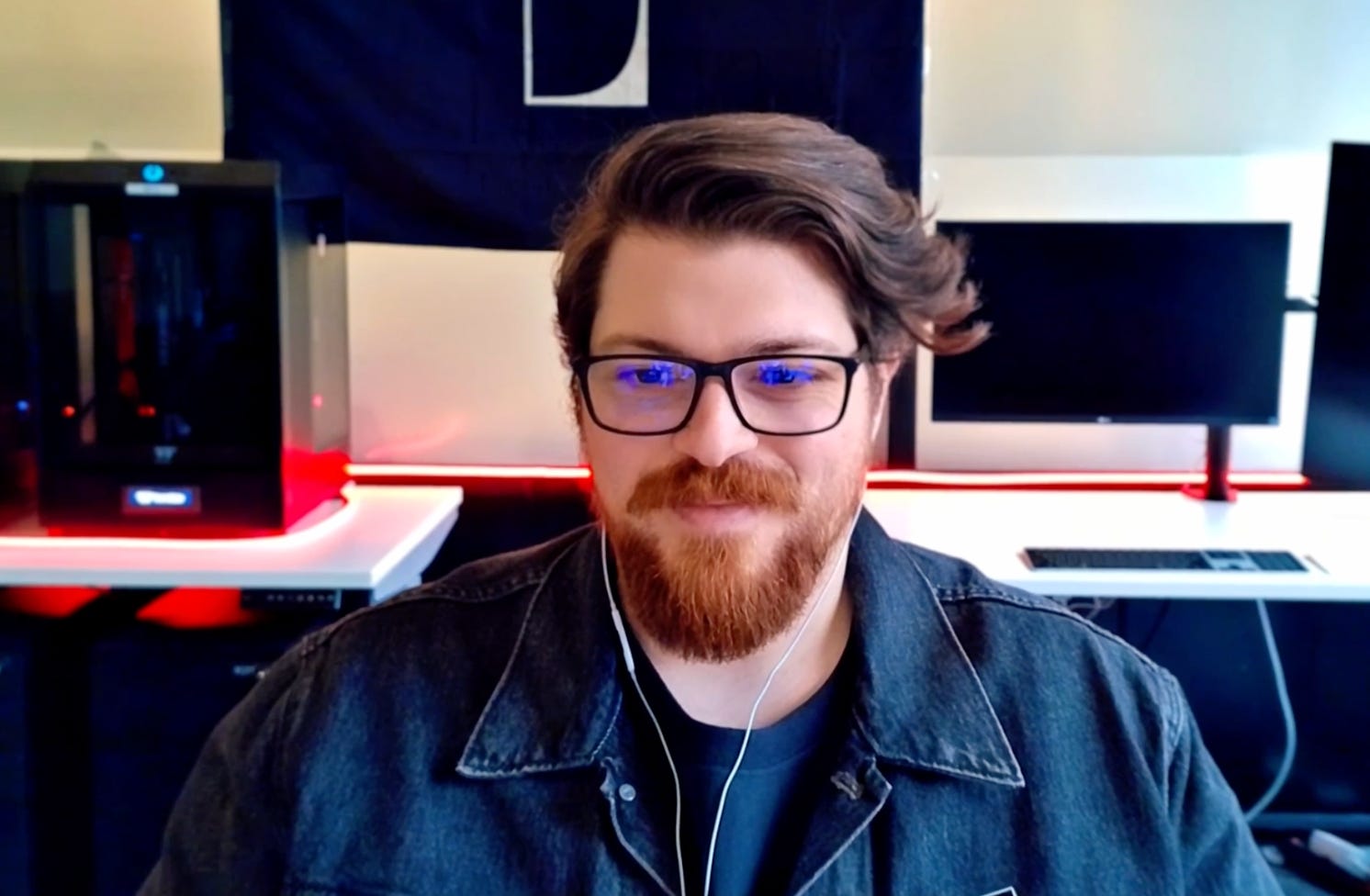
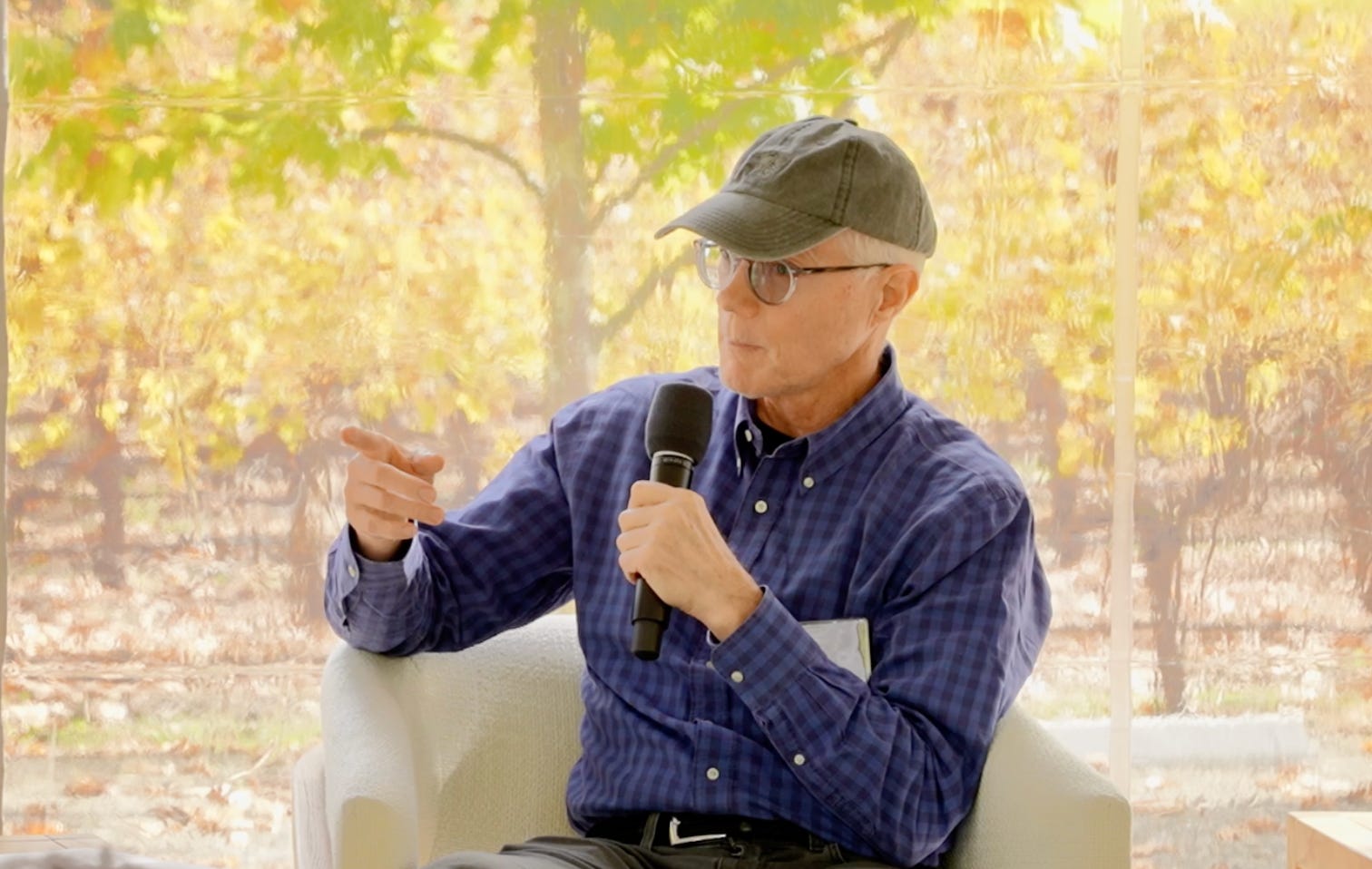
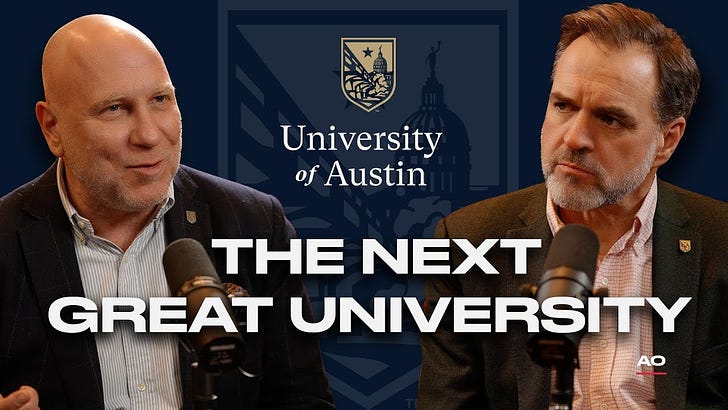
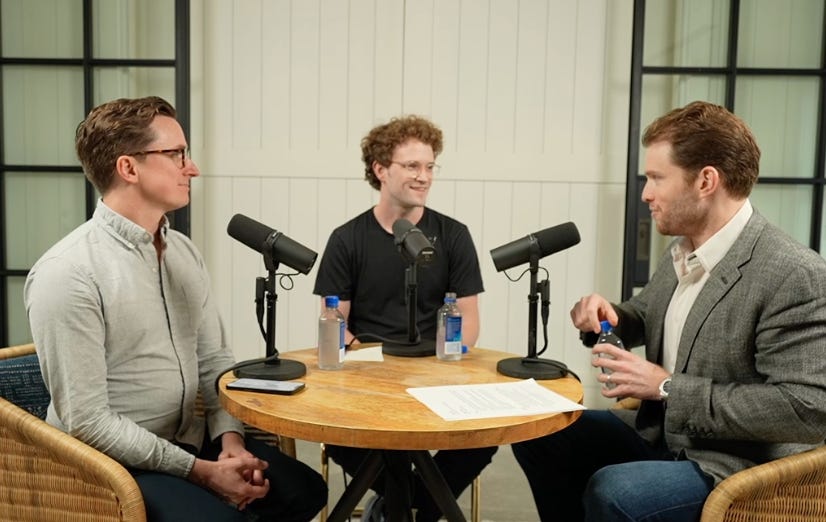
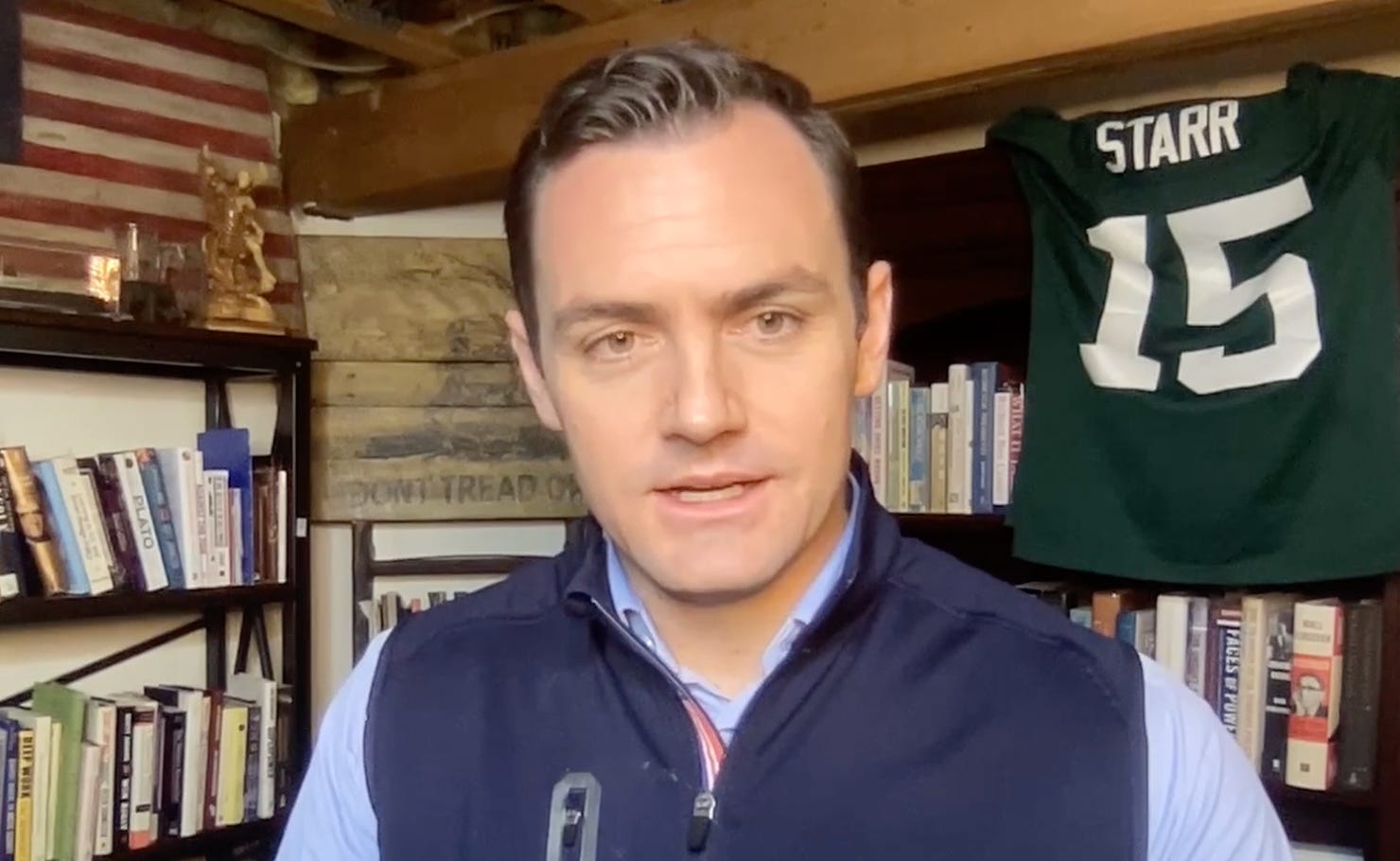
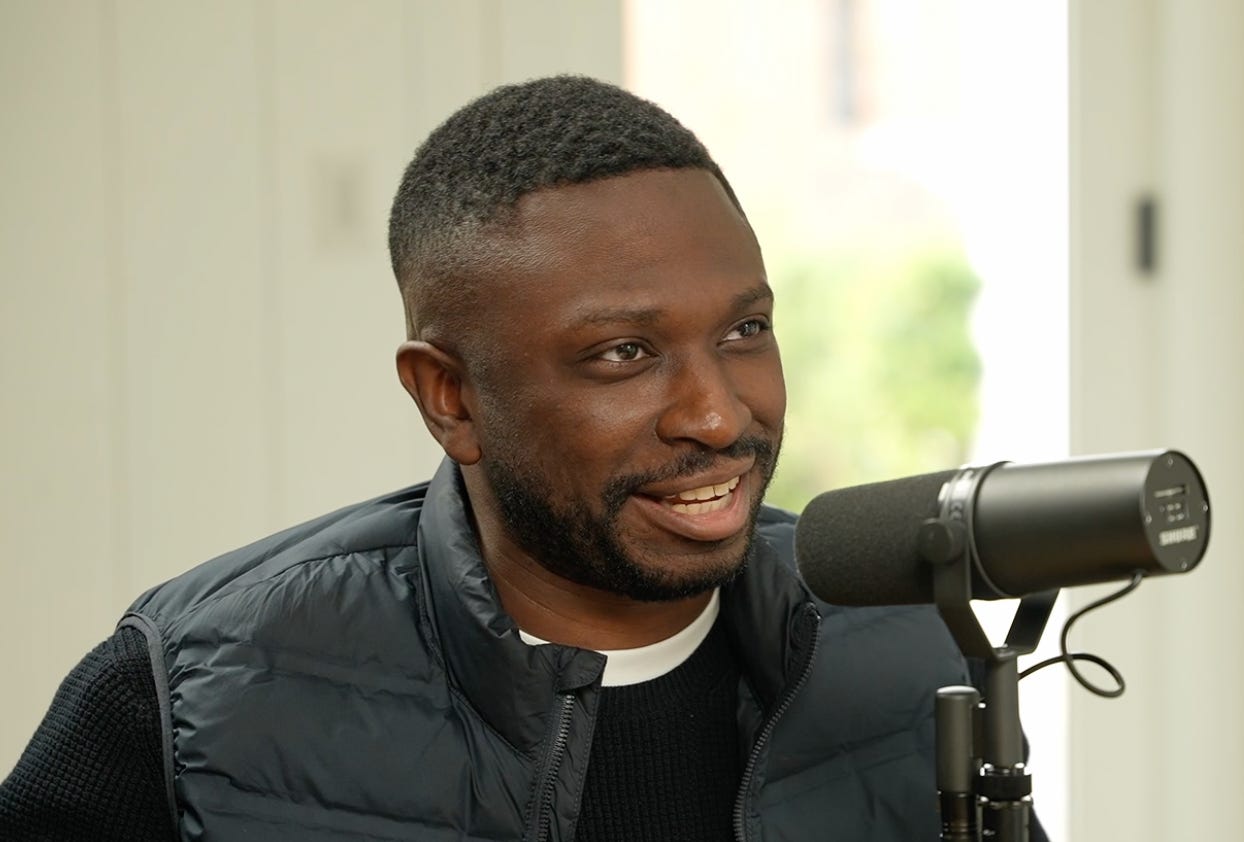



💚WATCH>>ᗪOᗯᑎᒪOᗩᗪ>>👉https://co.fastmovies.org